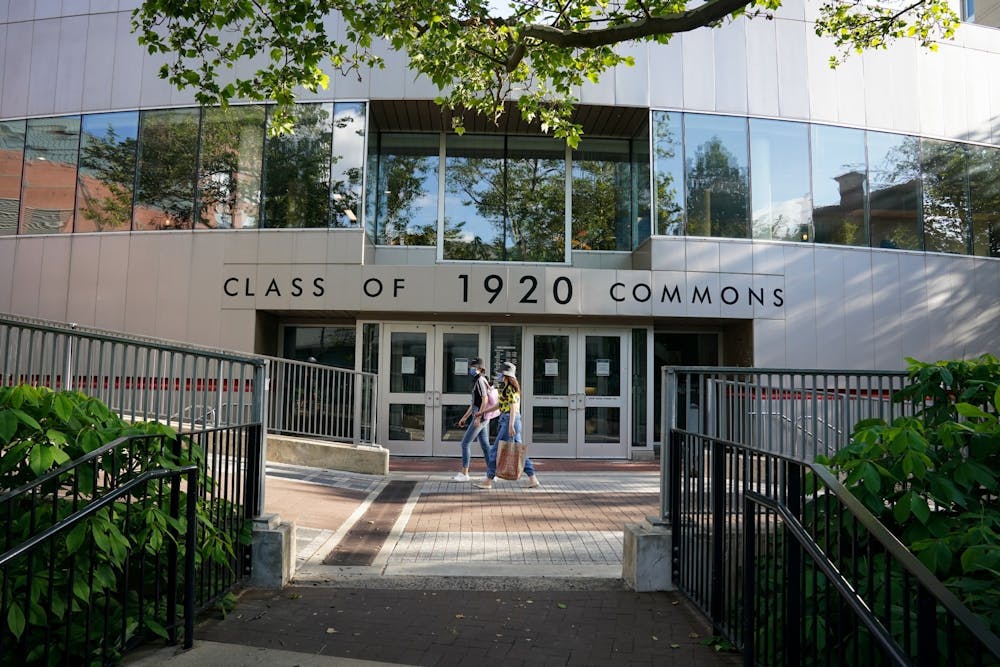
On Thursday, Penn announced that all community members, regardless of vaccination status, will be required to wear masks in indoor spaces open to the public. This change reverses the University’s previous policy, which only recommended mask wearing, but did not formally require it. This masking policy does not have a designated end date, and comes as Philadelphia County sees “substantial” transmission from COVID-19. The CDC recommends that all people, regardless of vaccination status, wear masks in areas of “substantial” or “high” transmission.
Despite the high vaccination rates on campus and mandatory vaccination policies, the contagious nature of the Delta variant warrants the reinstatement of mandatory masking, at least as a short term measure. As such, Penn students must respect the mask mandate, as a failure to do so could have dramatic repercussions.
Most obviously, this is a small price to pay for a fully in-person semester. Masks and face coverings are relatively low cost and readily available, and when worn properly, they have been proven to be highly effective in preventing the spread of COVID-19. Having an effective deterrent against the virus is all the more important given the emergence of the Delta variant, which can spread 50% faster than the previous Alpha variant.
Most students would likely agree to wear masks if the choice was between mandatory masks and virtual classes. Over the past year and a half, virtual classes have limited opportunities for social interaction and taken a mental toll on Penn students. While it is unlikely that Penn will revert to fully online classes, we could see a rollback of in-person activities in the event of high transmission rates. Preventing this requires relatively minor preemptive measures, such as the wearing of masks in classrooms.
Additionally, this policy change will help protect those students who remain unvaccinated. About 20% of students who are enrolled in on-campus programs, as well as nearly 20% of faculty and staff, have not yet reported their vaccination status. While some are vaccinated and have not submitted their status, those who are not yet vaccinated face higher risks of adverse consequences, including death, from the Delta variant. Moreover, having a mask mandate temporarily protects those who may have not yet had the chance to get vaccinated, such as international students.
Some might argue that Penn students are the least at risk of serious consequences of illness, and even if not yet vaccinated, they face a negligible risk of lasting consequences. Admittedly, while a majority of Penn students are young, healthy, and vaccinated, each of which lower the risk of serious consequences from COVID-19, there are immunocompromised students on campus for whom the vaccine is less effective. Moreover, although Penn community members will have a near 100% vaccination rate, almost 40% of the city is not yet fully vaccinated. To protect those vulnerable to severe illness, Penn students must wear a mask in accordance with the University mandate.
Masking is understandably a nuisance to many fully-vaccinated students and faculty, many of whom spent over a year complying with COVID-19 requirements. However, given the emergence of the Delta variant, it is necessary for a little while longer. For that reason, Penn students must follow the University’s mask mandate, and wear masks in their classes, dining halls, and hallways.
Editorials represent the majority view of members of The Daily Pennsylvanian, Inc. Editorial Board, which meets regularly to discuss issues relevant to Penn's campus. Participants in these meetings are not involved in the reporting of articles on related topics.
The Daily Pennsylvanian is an independent, student-run newspaper. Please consider making a donation to support the coverage that shapes the University. Your generosity ensures a future of strong journalism at Penn.
Donate







